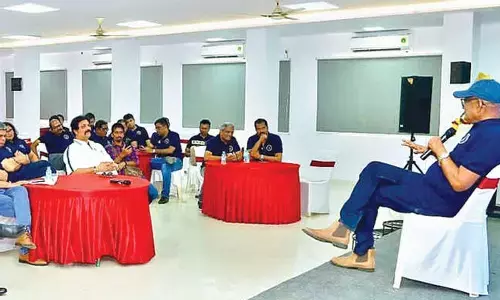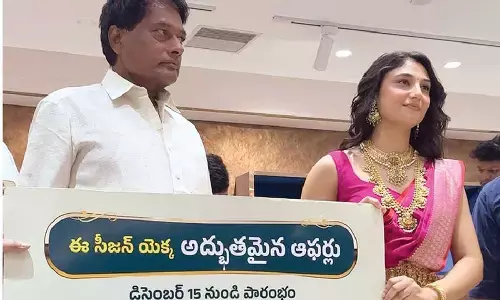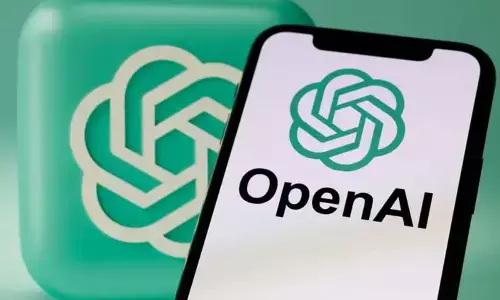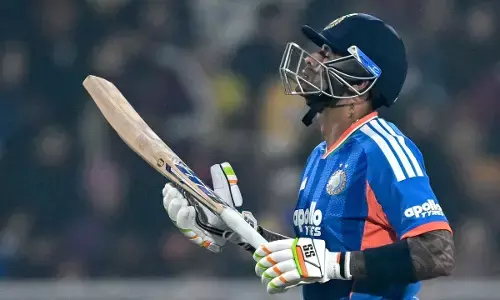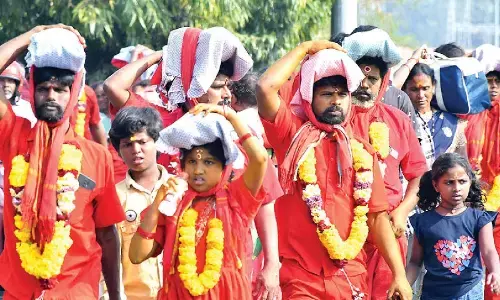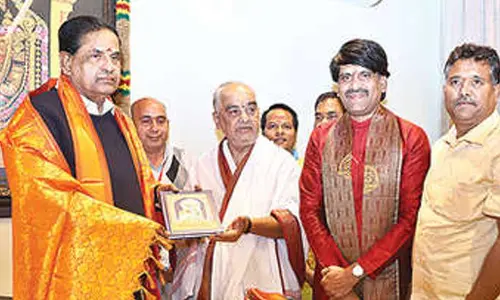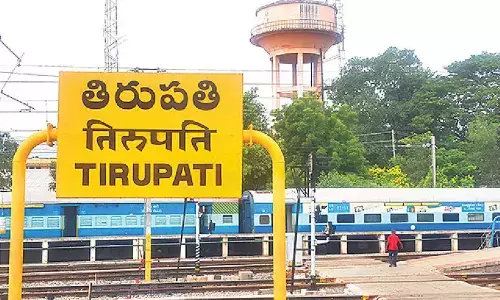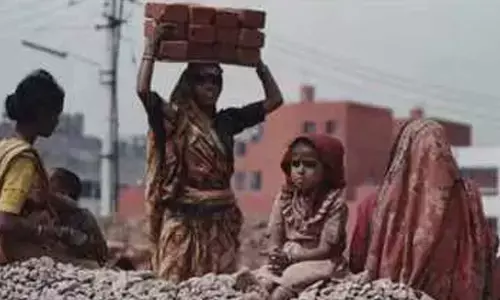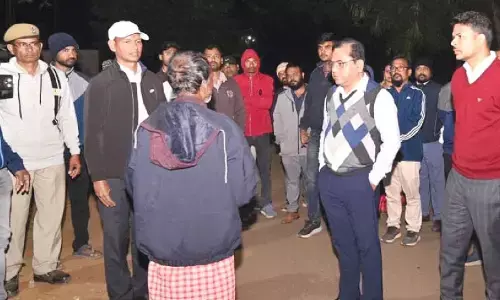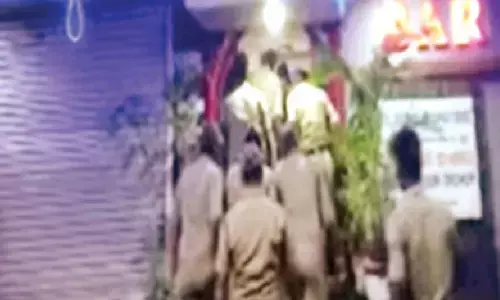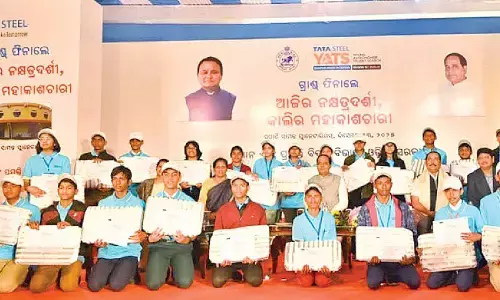Rajagopalachari opposed linguistic States

Rajaji’s 135th Birth Anniversary: Rajagopalachari Opposed Linguistic States. Chakravarthi Rajagopalach-ari, more popular as Rajaji, was a very well-known lawyer, writer, administrator, politician and statesman of India. He was the one and only Indian to be appointed as Governor General of India.
Chakravarthi Rajagopalach-ari, more popular as Rajaji, was a very well-known lawyer, writer, administrator, politician and statesman of India. He was the one and only Indian to be appointed as Governor General of India. As the staunch follower of Mahatma Gandhi since 1919, he became general-secretary of the Indian National Congress in 1921. Rajaji, thus, got acquainted with leaders like Jawaharlal Nehru, Vallabhbhai Patel, Maulana Azad, Rajendra Prasad and others.
Once regarded as Gandhi’s successor and was described by him as the "keeper of my conscience", Rajaji shared close kinship with Jawaharlal Nehru and Sardar Patel despite differences. Rajaji was born on December 10, 1878. While he was a child, an astrologer told his parents that he would have the "fortunes of a king, a guru, an exile and an outcaste.
 The people will worship him; they will also reject him. He will sit on an emperor's throne; he will live in a poor man's hut." The prediction came true. Rajagopalachari's interest in public affairs and politics began when he commenced his legal practice in Salem in 1900. He participated in the Non-Cooperation movement and gave up his law practice.
The people will worship him; they will also reject him. He will sit on an emperor's throne; he will live in a poor man's hut." The prediction came true. Rajagopalachari's interest in public affairs and politics began when he commenced his legal practice in Salem in 1900. He participated in the Non-Cooperation movement and gave up his law practice.While Gandhi was in prison, Rajagopalachari led the group of "No-Changers", individuals against contesting elections for the Imperial Legislative Council and other provincial legislative councils, in opposition to the "Pro-changers" who advocated council entry. The motion was put to vote and the "No-changers" won by 1,748 to 890 votes.
This resulted in the resignation of important Congress leaders including Motilal Nehru and C. R. Das, the then president of the Indian National Congress. When Gandhi organised the Dandi march in 1930, Rajagopalachari broke the salt laws and was imprisoned by the British.
Following enactment of the Government of India Act in 1935, Rajagopalachari was instrumental in getting the Indian National Congress to participate in the 1937 general elections. Indian National Congress came to power in the Madras Presidency and Rajagopalachari was the first Premier from the Congress party.
From 10 until 24 November 1947, Rajagopalachari served as Acting Governor-General of India in the absence of Governor-General Lord Mountbatten, who was on leave in England to attend the marriage of Princess Elizabeth to Mountbatten's nephew Prince Philip. Rajaji led a very simple life in the viceregal palace, washing his own clothes and polishing his own shoes.
Impressed with his abilities, Mountbatten made Rajagopalachari his second choice to succeed him after Vallabhbhai Patel, when he was to leave India in June 1948. Rajagopalachari was eventually chosen as the Governor-General. By the end of 1949, an assumption was made that Rajagopalachari, already Governor-General, would continue as president.
Backed by Nehru, Rajagopalachari wanted to contest for the presidential election but later withdrew, due to the opposition of a section of the Indian National Congress mostly made up of North Indians. At Nehru's invitation, in 1950 Rajagopalachari joined the Union Cabinet as Minister without Portfolio where he served as a buffer between Nehru and Home Minister Sardar Patel and on occasion offered to mediate between the two.
Following Patel's death on 15 December 1950, Rajagopalachari was finally made Home Affairs Minister served for 10 months. As Home Minister he expressed concern over demands for new linguistic states, arguing that they would generate differences amongst people. In the 1952 Madras elections, the Congress was reduced to a minority in the State Assembly with a coalition led by the Communist Party of India winning most of the seats.
The then Madras Governor Sri Prakasa appointed Rajagopalachari Chief Minister after nominating him to the Madras Legislative Council without consulting either Nehru or the ministers in the Madras State Cabinet. Rajagopalachari was then able to prove his majority in the Assembly by luring MLAs from opposition parties to join the Congress.
Nehru was furious. Rajagopalachari remained an as unelected member of the legislative council and did not contest election. During Rajagopalachari's tenure as CM, a powerful movement for a separate Andhra State gained a foothold. Potti Sriramulu embarked on a hunger strike reiterating the demands of the separatists and calling for the inclusion of Madras city within the proposed state.
Rajagopalachari remained unmoved by Sriramulu's action and refused to intervene. Sriramulu eventually died on December 15, 1952. Both Rajagopalachari and Prime Minister Nehru were against the creation of linguistically demarcated states but as the law and order situation in the State deteriorated, both were forced to accept the demands. He resigned as Chief Minister on April 13, 1954 attributing the decision to poor health.
Following his resignation, Rajagopalachari devoted his time to literary pursuits. He was an accomplished writer who made lasting contributions to Indian English literature. He wrote a Tamil re-telling of the Sanskrit epic Ramayana which appeared as a serial in the Tamil magazine Kalki.
The episodes were later collected and published as “Chakravarthi Thirumagan”, a book which won him the 1958 Sahitya Academy award. In 1951, he wrote an abridged retelling of the Mahabharata in English, followed by one of the Ramayana in 1957. Earlier, in 1961, he had translated Kamban's Tamil Ramayana into English.
In 1965, he translated the Thirukkural into English and also wrote books on the Bhagavad Gita and the Upanishads in English. On Republic Day 1955, Rajagopalachari was honored with India's highest civilian award, the Bharat Ratna. By November 1972, Rajagopalachari's health had begun to decline and he was admitted to the Government Hospital, Madras where he died on December 25, 1972 at the age of 94.
Next Story








